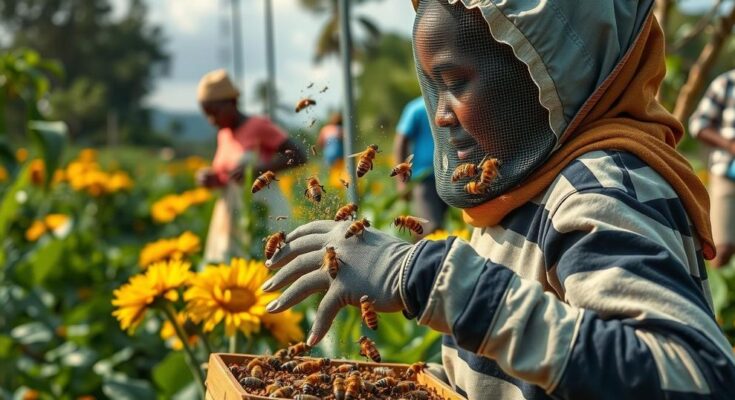Communities in arid Kenya are turning to beekeeping as a sustainable alternative to traditional farming, which is threatened by climate change. This shift not only offers economic benefits but also aids in conservation efforts and community resilience.
Beekeeping is emerging as a viable alternative livelihood for communities in Kenya, especially those living in arid and semi-arid regions grappling with the impacts of climate change. As traditional farming practices are increasingly challenged by erratic weather patterns, beekeeping provides not only a sustainable source of income but also plays a crucial role in environmental conservation. The initiative aims to enhance community resilience against climatic extremes by fostering partnerships among local beekeepers and providing training on modern beekeeping techniques.
Climate change impacts, particularly in drylands, have been highly detrimental to traditional agricultural practices in Kenya. The U.N. Environment Program has indicated that such communities endure the gravest consequences of global warming, facing increasing occurrences of droughts and floods. To mitigate these challenges, conservation organizations have recognized the necessity of adaptive strategies that include beekeeping, which is less susceptible to weather fluctuations compared to conventional farming.
In summary, beekeeping represents a significant opportunity for communities in Kenya affected by climate change. This emerging livelihood not only assists in coping with environmental adversities but also contributes to biodiversity conservation. By equipping local residents with necessary skills and knowledge, the initiative fosters economic stability while promoting sustainable practices that can endure the challenges presented by the changing climate.
Original Source: www.voanews.com




